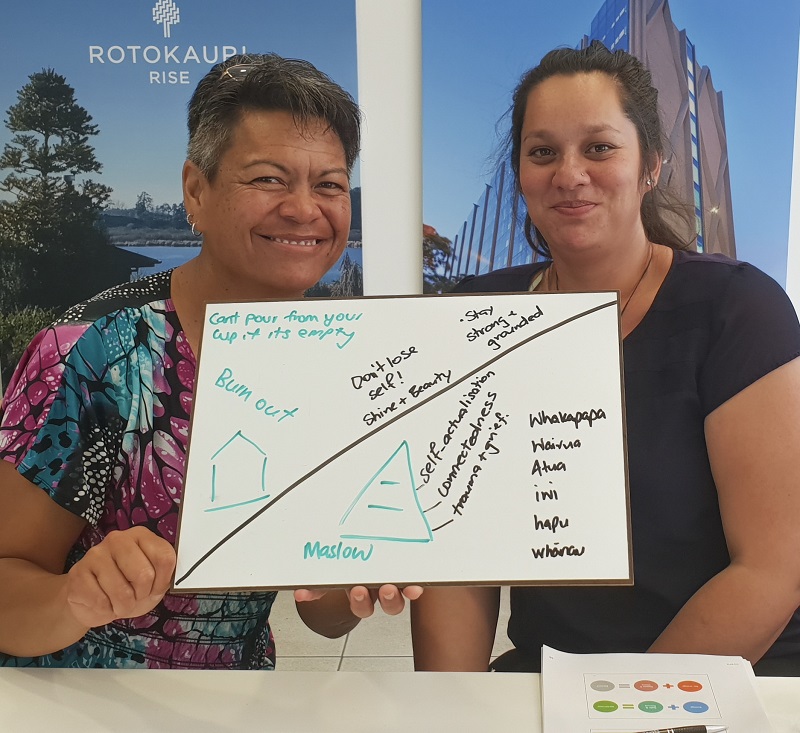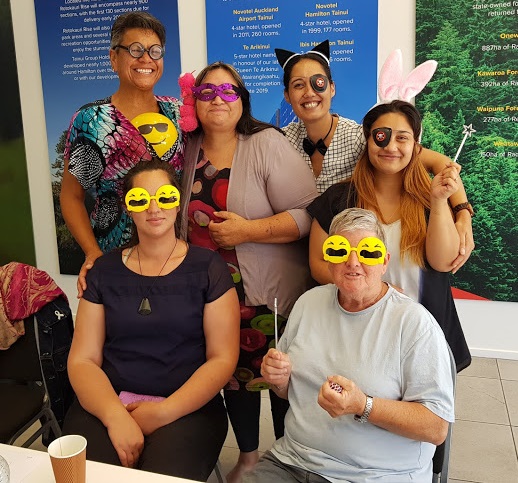Enhanced training for caregivers
Published: April 29, 2019
New training programs are being developed to help caregivers support tamariki with challenging behaviours who have experienced trauma.
Helping tamariki heal from trauma
Caregivers have been involved in six pilots run by external providers around the country in the past year. The responses have been positive with carers, both kin and non-kin, learning new skills to support tamariki and forming connections with each other.
The outcomes are being evaluated with the aim to roll out enhanced training opportunities for all caregivers next year.
The training aims to help caregivers better understand the impacts of trauma on tamariki so they can help them heal and recover, Caregiver Recruitment and Support Manager, Kerry Leggett, says.
“This is one of the biggest needs for our caregivers as we know often they don’t feel adequately prepared. We want them to have more tools in their kete so they have greater confidence in caring for tamariki.”
It will also focus on the importance of whakapapa and whanaungatanga for a child’s sense of belonging and identity, as guided by new legislation to better support tamariki Māori - Section 7AA, and the Care Standards.

Growing resilience and capability
Whakapapa and cultural identity are core focuses of Puawai – a pilot started by Sharon Shea in Waikato which 31 caregivers have completed so far.
Trainer, Stacey Mcgregor, says they aim to grow capability and resilience with caregivers and tamariki to strengthen whānau, both kin and non-kin.
“It’s clear from our engagement with caregivers that they have been missing this type of training, so it’s a privilege to equip them with new skills and strategies in their mahi. Credit to the Ministry and the local teams in Hamilton for having the flexibility and willingness to try something new in this space.”
Tamariki need to feel part of the natural rhythm of a whānau, and feedback so far shows the training can help to increase stability in placements for them, Kerry says.
“One Grandfather who is caring for his moko in Hawkes Bay said the training pilot there helped him realise the boy has different needs and he needs to change his response to support him. He also really appreciated the opportunity to meet other caregivers.”

We are looking at new ways to provide training that are more adaptive to the needs of our caregivers and tamariki.
Kerry Leggett, Caregiver Recruitment and Support Manager
Fostering peer support and local connections
Encouraging caregivers to connect with each other and form local support networks is another aspiration for the training.
“Any opportunities for peer support are positive because we know caregivers don’t always want to come to us for help,” Kerry says.
“It can feel quite isolating as a caregiver, so having others to talk to and seek guidance from in their own community before situations escalate can make a big difference.”
This will be an addition to the training opportunities offered by Fostering Kids.
The Oranga Tamariki Ways to Care training which is available to everyone before becoming a caregiver, is also being refreshed to better meet people’s needs early on in their caregiver journey, Kerry says.

